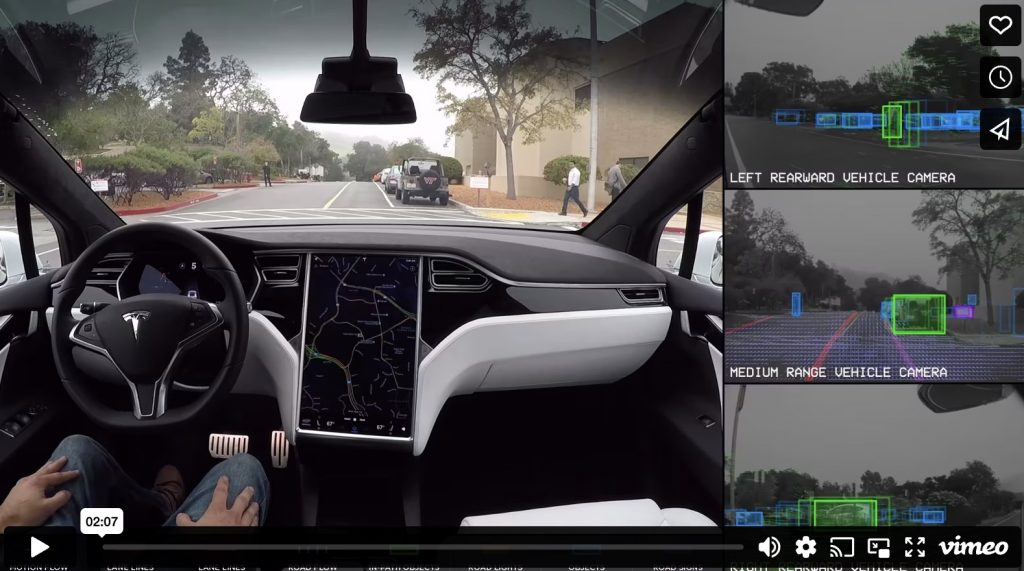
Tesla CEO Elon Musk may get a payback for supporting Donald Trump’s presidential reelection campaign. Members of the president-elect’s transition team say that a plan to create a federal framework for autonomous vehicles is one of the U.S. Dept. of Transportation’s top priorities, according to confidential sources. Musk, who has been a major contributor to Trump’s campaign, has made self-driving technology and artificial intelligence the foundation of where the EV maker is heading.
Tesla has been offering full self-driving capability on all of its new vehicles in recent years, and the company may be offering robotaxi services. The federal government has taken longer to clear policy for allowing for self-driving cars than automakers like Tesla had hoped for.
The National Highway Traffic Safety Administration currently permits manufacturers to deploy 2,500 self-driving vehicles per year under a granted exemption. The federal agency has safety investigations underway, including driver-assistance systems and autonomous vehicles that Tesla offers through its Autopilot and Full Self-Driving options.
Approval of autonomous vehicles at mass-market level will likely need full approval in Congress.
Tesla would also like to offer full self-driving technology early next year in China, according to Marketplace. That would require regulatory approval from Chinese officials. Cheese automakers would be competing with Tesla to take the lead in autonomous electric vehicles offered in that market.
Residual award winner: The 2025 Hyundai Kona Electric has earned a J.D. Power 2025 Best-in-Class Residual Value Award in the program’s newly introduced Mainstream EV SUV segment. Hyundai Motor America also announced that the 2025 Hyundai Santa Fe and IONIQ 6 did well in the residual value awards, both ranking second in their respective categories. These annual awards honor the new vehicles expected to retain the highest percentage of their original manufacturer’s suggested retail price (MSRP) over three years, which is essential for determining lease costs, overall vehicle value and total ownership cost.
EV Joint Venture: Rivian Automotive and Volkswagen Group have created a new joint venture, called “Rivian and VW Group Technology, LLC”. The deal came in at $5.8 billion. Through this JV, the companies plan to bring next-generation electrical architecture and best-in-class software technology for both companies’ future electric vehicles, covering all relevant vehicle segments, including subcompact cars. The JV reflects Rivian’s software and electrical hardware technology as well as Volkswagen Group’s significant global scale and industry-leading vehicle platform competencies.
Tesla facing safety problems: Distracted driving and higher rates of speed are behind a high crash rate for Tesla. Automotive research and data analytics firm iSeeCars reports that the Tesla Model Y has a fatal accident rate of more than three times the average car over a billion miles driven. The Model S is twice more likely to result in a fatal crash than the average car. The firm analyzed data from the National Highway Traffic Safety Administration’s Fatality Analysis Reporting System. It included model year 2018-2022 cars with crashes that resulted in at least one occupant fatality to identify the most dangerous vehicles.
“New cars are safer than they’ve ever been,” said Karl Brauer, iSeeCars Executive Analyst. “Between advanced chassis design, driver assist technology and an array of airbags surrounding the driver, today’s car models provide excellent occupant protection,” he added. “But these safety features are being countered by distracted driving and higher rates of speed, leading to rising accident and death rates in recent years.”
Battery prices: Goldman Sachs has released a report predicting that global average battery prices will decline to $80 per kilowatt hour (kwh) by 2026, which is almost 50% lower than the $149 per kwh in 2023. The price decrease has been coming from technological advancements, mainly around larger cells and cell-to-pack tech that lower the number of batter modules needed. A downturn in the price of raw materials is also helping, especially lithium and cobalt.
Hydrogen Summit: Clean Cities Georgia recently announced the Georgia Hydrogen Summit, which will take place Dec. 4, 2025, at the Historic Academy of Medicine. In partnership with the Southern Hydrogen Energy Alliance (SHEA), Georgia Institute of Technology, and Southern Company, the Summit will bring together businesses and organizations that wish to be at the forefront of adopting hydrogen energy within Georgia and throughout the Southeast.



